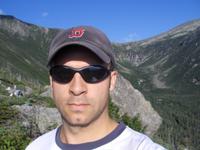One of the best classes I have taken at Gordon-Conwell is "Worship and Christian Formation." The foundation of the course, taught by Gary Parrett, is what he calls the "9.5 Theses of Worship." This should harken you back to Luther's monumental 95 Theses. I honestly believe if congregations and their leaders applied the wisdom distilled below, there would be a modern reformation.
1. Our heavenly Father wills that the whole life of believers should be worship.
2. The word worship, when applied to public gatherings of the saints, must not be reduced to a synonym for singing praises to God.
3. Worship involves a rhythm of revelation and response: God graciously reveals himself to us, and we faithfully respond—all the elements must help worshipers
participate in this rhythm.
4. Those who lead the congregation in song must be theologically equipped for this important task.
5. Faithful response to God involves more than praise—we need a much broader range of
songs available for congregations.
6. The body of Christ in worship is more than an assembly of individual worshipers—
we need more we songs.
7. The body of Christ is far bigger than what we see in the gathered community—and our songs should reflect this.
8. Those who lead the church in song are called to assist the congregation in its
singing, not to replace it—technologies such as amplification must be used with
theological and pastoral sensitivity.
9. The Seeker that we must serve in our worship services is, first and foremost, God himself.
9.5 In its services of public worship, the church must obey such Scriptures as Philippians 2:3-4: "Do nothing out of selfish ambition or vain conceit, but in humility consider others more important than yourselves. Each of you should look not only to his own interests, but also to the interests of others."
--By Gary A. Parrett
Link:
9.5 Theses on Worship
Sunday, February 20, 2005
Subscribe to:
Post Comments (Atom)


No comments:
Post a Comment